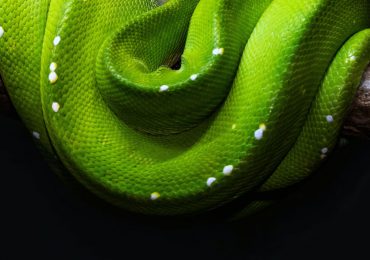The JRB presents a psest by Ben Williams.

Let That Sink In
A writer once told me he carried around a master fable about his life as an accessory, like a handkerchief or opera glasses. The fable stayed in hiding somewhere near the weary collective of his eyes, nose and mouth, flashing across them every so often like a gust-blown napkin. Once the storm blew off, he would slump back into his routine grimace, which washed along like a dab of sallow gouache among the shining pink and brown faces of the socialites with whom he was known to mix. In that sense, as a counterbalance to their youthful effervescence, the writer had accessorised himself, and found his recipe for staying young.
Many in the writer’s orbit referred to the collection of flourishings and minor outrages he would produce, like a deviant party magician, as his alter ego. His own name for his turn to public eccentricity, which he insisted was ‘mere mythic fable and fun, invented for astoundtertainment purposes only,’ was the more sanguine ‘Jackson’.
‘Jackson’s not a Jekyll and Hyde thing,’ he said conspiratorially one evening, ushering me into his confidence with an arm heavily draped on my shoulder. The cuff of his sky-blue shirt peeked out from a suit jacket sleeve as green as though it was made for St Patrick’s Day. His plump, pale hand hung freely off my shoulder, white hair like egret feathers settled on his knuckles. He shifted me away from the assemblage of cocktail dresses and shiny blazers in various hues that we had been idly viewing together. Observing the affairs of society from its margins was something writers did for sport, I felt. Standing with him in the act filled me with the glow of comradeship.
The crowd had formed over the evening in a low lit, seemingly infinite reception room on an upper floor of a swish high-rise near 61st and Lex. Gold and silver balloons floated elegantly in bunches, never quite touching the room’s high ceiling, though their strings were untethered. They looked like specimens of a rare, benign jellyfish, gently modulating to the frequencies of the bodies moving below them.
‘Jackson’s about creating the illusion that there is more than meets the eye,’ the writer said. ‘More depth, more drama, more backstory. Why not put on an act and set this stuck-up mob all a-quiver?’ He gripped my shoulders with both hands, then, and re-oriented me to face the door across the room where guests continued to pour in from the elevator lobby. The door’s wide, grooved frame was finished in a satiny cream that denoted high elegance. He struck out repeatedly with his arm, as though flinging frisbees at the shins of those walking in, muttering, ‘You see? You see? You see?’
I saw. Or, so I thought.
Just beyond his reach, a few partygoers, including a young man who was shirtless except for his red, white and blue suspenders, which matched the band on his Panama hat, seemed to flinch at the writer’s strange motions. They apparently understood that their proximity to such a volatile person, though thrilling, put them somewhat at risk. When the writer placed his arm around my shoulder again, drawing me even closer, so that I could smell sour sauvignon blanc fumes drifting out from under his thin moustache, they fell easily enough back into their greedy grins and locked gazes and overlapping cackles—but kept us, I noticed, in the corners of their eyes.
At this point, Trixie cleared her throat.
I should mention Trixie.
When I arrived, she was already standing with the writer, sheathed in a sleeveless cinnamon-pink cheongsam, which seemed to elevate her slightly, as though she were riding on a magic spume of lace and sequins. Her stare lighted flittingly but severely across the crowd. She gave the impression of a shearer regarding sheep.
The writer had made introductions, mentioning that he and I had met at his recent book signing in the East Village. He and Trixie, meanwhile, were ‘old pals from the teatro,’ he said, gesturing expansively at the party. I expressed my appreciation for the art that wound up Trixie’s arms, a multicoloured, veiny tangle that coalesced, on her left arm, into the form of an octopus, and on her right, that of a squid. The squid travelled the full length of her limb, its mantle covering her bare shoulder, its steering fins just intruding on her clavicle, its two long feeding tentacles brushing the place where her wrist met the back of her hand. The squid’s platter of an eye goggled at the world from her elbow.
‘My dear calamari,’ she had said, rolling her squid arm like she was conducting a symphony. The creature seemed to dart up her flesh.
Now, with the writer hanging himself on my frame, she said, still gazing over the crowd, ‘The rats are up from the sewers.’
‘And what does that make us?’ asked the writer.
‘Personally? I’m a vampire,’ she said. She walked her eyes from my shoes to the knot of my tie. She turned to the writer, reaching out with her octopus arm to stroke him at the nape of his neck.
‘Veal, at this hour,’ she tutted.
I assumed I misheard.
We joined the rats for a while, rotating in elliptical jerks like a detached triskelion, or an amoeba probing its way through a soup of foreign proteins. We brushed past clusters of careers and neighbourhoods and cousins innumerably removed, people unaccountably flush and happy, going hoarse. They embraced the writer and Trixie, all hugs and air kisses, while I scuttled in their inky shadows.
Eventually, we arrived back at our original spot.
The writer said, ‘You become a writer when you find something inside you that turns your pupils so hard they can see the carotid artery pulsing in a boy’s neck.’ The wine was likely also talking at this point. Then he showed me what he meant: his hand rose to my own neck, nestling into my shallow beard. Outwardly, it must have looked as though he was choking me. An acceleration of events seemed to take place at this point. He applied a touch of extra pressure that rippled across his hand, and the party’s low roar filled my ears.
‘You’ve got to break out of irony,’ he said. ‘Life is real.’
The eyes of the room were suddenly fixed on Jackson, gripping the throat of a stranger. In that same moment, I felt a blood vessel in my neck pulse strongly against the fat part of the writer’s hand, just below his thumb, which was digging into my jaw. Deep within this muscle, a reciprocal coursing of the writer’s own blood was also evident. For a moment, we stood frozen, blood thrumming, our heartbeats locked. I regarded the writer—his face had changed, grown younger. A snarl of delight had formed on his lips. His ears were flushed bright red.
‘Trixie, your wine,’ he said. She passed him her glass, which contained a puddle of the expensive cabernet the waiters had been bearing through the crowd all night. Releasing me, but gesturing with a finger that I remain in place, he produced a yellow handkerchief, dipped a corner in the wine, then leaned toward me, squinting as though trying to read fine print. Then he whipped the handkerchief across my neck. Its sting reminded me of the tentacle of a jellyfish I once encountered in the Hawaiian surf. The tip of the handkerchief painted a mark precisely at the place where the writer’s hand had throbbed the moment before.
‘Bang bang you’re dead,’ he said. He bent over, laughing in a giddy wheeze, and the stained yellow handkerchief spilled on to the floor. The slash of wine burned my neck. I heard a shout or two from the crowd. I meant to raise my arm to wipe the wine off, but found it wouldn’t move, a physical failure that confounded me until I looked down and saw a squid flexing against it, pinning it to my side.
‘That’s for me,’ Trixie said. She pressed herself against me, and my body yielded to a singular wildness in her arms, shoulders and thighs, which were bulging with muscle and hard as ivory.
Her lips attached to my neck like a large, round sucker. As she tasted me, the sensation of an ever-unfurling caress electrified my flesh. I seemed to be wholly enveloped. Her body writhed around mine, fixing me in place, enfolding and devouring me. Some in the crowd had their phones out, I saw, and were filming. Her arms and legs shone dully in the glare, performing a rite of possession around my torso while her head smeared itself from my earlobe to my voicebox.
Finally, a nip—her teeth scratched my skin like a beak. I flinched. Trixie let go, her arms slithering off me in retreat. I touched my neck. A mineral-slick paste of lipstick came off that I rubbed between my finger and thumb. ‘Trixie,’ I said hoarsely, drunk on the moment, but she was swimming away. I caught a glimpse through the sheer fabric of her dress of a cuttlefish tattooed between her shoulderblades, a welt of colour like brocade on skin. She didn’t look back, but flashed iridescently, then melted out of existence.
(Later, I reviewed a few of the clips that made their way onto social media, and while a sense of melee and disorder that was true to the moment was present in the footage, in the end what the action most resembled was—dancing. A hookup dance of a certain intensity between two party guests, recorded jerkily in low light, that ended with the woman sauntering off into the crowd. That was the full tawdry extent of the thing, ten or so seconds, now clasped within a locket only I carry around.)
I tracked the writer down by his green jacket. He was across the room, standing with a group that included the man with the patriotic suspenders. The writer had grabbed one of the suspenders and was threatening to snap it against its wearer’s chest. His downy knuckles were poised like a barroom brawler’s under the man’s chin.
‘Ben,’ he said in feigned surprise. ‘Everyone, this is Ben. He’s a writer. Where’s Trixie?’ Then—‘This young man’s nipple is about to fly off like a UFO.’ The group laughed—especially the soon-to-be victim of his attention, who produced sounds that were close to a donkey’s bray. The writer kept them in thrall a moment longer, then returned the suspender strap gingerly to its proper place, patting the man’s bare pecs as though to appease them. The group fell apart again at his performance.
I lingered just long enough to confirm that I no longer had a place at the writer’s side. Removing myself from the party, the elevator, the building could not have been simpler if I had been one of the city’s many at-large ghosts. Now I was on the street, which was wet from rain, remnants of clouds like schools of fish coasting along in the dark sky.
Two questions confronted me. First, whether I could afford to book a car back to Brooklyn. And second, how to tell myself the story of the events just passed.
The first question I answered immediately, and from a place of deep denial: the ride cost as much as a hotel room for the night. I nodded along with the rocking of the car, then fumbled and stumbled my way into the walk-up I shared with two others. I trusted the tide of memory to gather my evening’s companions in its inevitable embrace and throw them back up, bedraggled by recollection, for me to inspect and pick over in due course. I fell asleep in my clothes.
That night, in my cold bedroom, uninsulated both from the weather and the noise of the street, I woke with a start and tapped my dreams into my phone:
—correcting the lacquered hands on the dials of giant clocks running slow by epochs
and
—looking up from wet sidewalks to faces painted in oil on high windows, mouthing their intricacies
and
—dolls buried head first in potting soil
and
—‘the dirty eye of the rooster, that dirty eye’
As usual, nothing came of these jottings, which must still drift somewhere within the recesses of a machine whose location is unknown to me, unknown to everyone, unknown to the words themselves.
*
When the writer’s most recent novel appeared a few months later, quickly gaining more momentum than his last several combined—success that, on balance, he deserved—I took a chance and sent him a note care of his publisher to congratulate him and show there were no hard feelings. That is what I told myself, at least. Really, I knew, I was seeking to burrow back into the story of that night near 61st and Lex. To solve the labyrinth. So I also asked, somewhat flirtily, in the manner of lesser writers cajoling greater ones, after Jackson’s health.
To my surprise, the writer’s reply came that same day. He wrote to me directly:
Dear Ben,
Thank you for yours, compliments returned. Of course I recall the soirée and the sublime dress dear Trixie wore.
The book was a botfly infestation and pure agony. Surprisingly, the treatment is going well. Next malady beckons.
The list of things on my mind is short and dull. Pax Russica, misinformation—silly bits. What to take to get the ache in my arm to fucking go away. Placation of the Plague. Plaggation. Fear of my publicist’s next call. Stuff and nonsense, if you ask me (you did).
The things on Jackson’s list are different. Number one, to start writing limericks on people’s thighs in exchange for … a number of felicities …
Ben, the opera is where you’ll find the auric apple. A bit part will do. Trouser roles, mad scenes, etc.
Yours truly,
[writer] / Jackson
Reading his note was like trying to put a puzzle together without the box.
After several days, it sank in. A feast of dew, the writer had served me.
Whispering, and then the story started over again.
~~~
- Ben Williams is the Publisher. He is @benrwms on most platforms. This is the web2 version of his first psest, which is also available on web3, here.
For an important note on this work’s chronology, click here.





